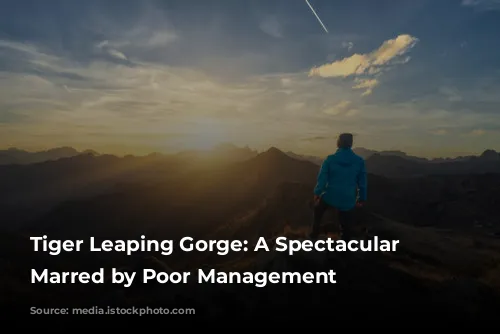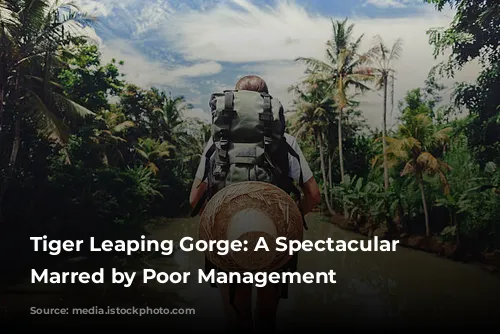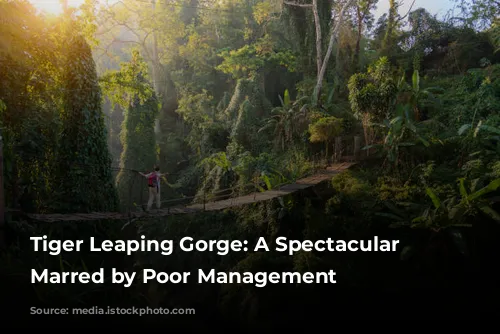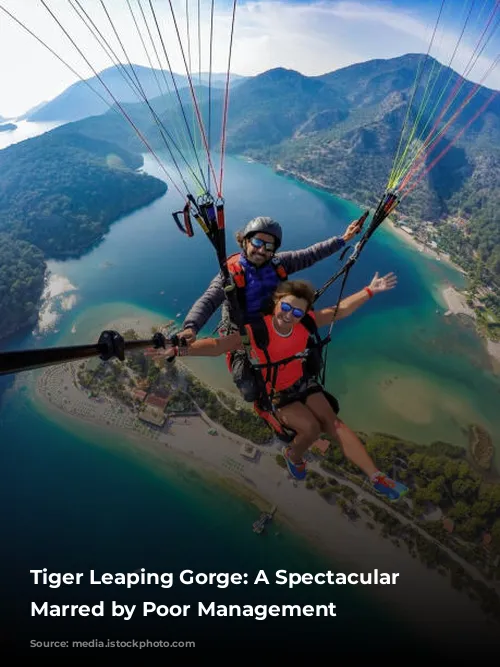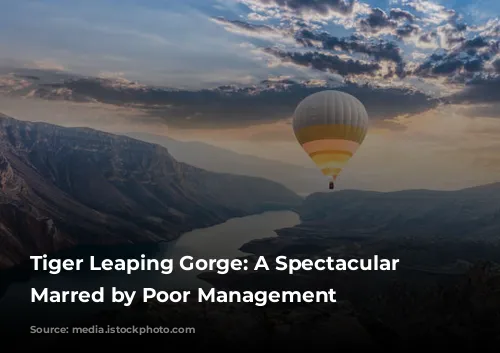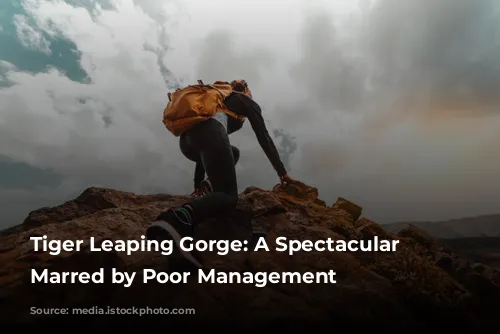The Tiger Leaping Gorge is a breathtaking sight, but its beauty is sadly overshadowed by poor management. You might find yourself waiting two hours in line for a half-hour tour! During the off-season, the scenic bus is often absent, leaving only a chaotic parking lot at the entrance. Cars are bumper-to-bumper, all trying to get in. In peak season, you can park in other designated areas, but then you’ll have to take a scenic bus to the main attraction. It’s clear that the system needs to be adaptable based on the number of visitors. Waiting two hours is simply unacceptable.

Balagezong Scenic Area: An Expensive Experience
The Balagezong Scenic Area is a mountainous region with breathtaking scenery. However, it’s a bit of a let down. The village of Bala is now completely deserted, leaving only a “former residence of the road builder” for visitors to see. There’s not much else to explore. To reach the Barafota tower, you’ll have to take a limited-time ride in their vehicles. You’re rushed through the experience, barely able to enjoy it. The limited bus frequency makes it difficult to see everything in a day. Overall, the only truly worthwhile spot in the Balagezong Scenic Area is the Shambhala Buddha. Honestly, unless you are willing to spend extra money, there isn’t much to see here.

Dukezong Ancient Town: A Step Back in Time
The Dukezong Ancient Town is a well-preserved Tibetan settlement, the largest in all of China. It’s a fascinating place, with a history that dates back to the Tang dynasty. The town, named “Dukezong”, has a unique meaning in Tibetan, translating to “castle built on stone” or “moonlight city”. For centuries, the town has been an important stop on the ancient tea horse road, a vital trade route for horses and tea. The Big Buddha Temple and the prayer wheel are the most popular attractions. The prayer wheel, built in 2002, is the largest in the world and a tribute to Zhongdian’s new name, “Shangri-La”. Today, Dukezong Ancient Town is a mix of traditional and modern, with shops, restaurants, and inns catering to visitors. It’s a delightful blend of history and commerce.
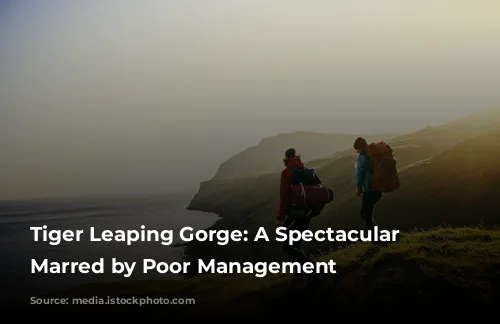
Wu Di Hu (Bottomless Lake): A Hidden Gem
Just a short drive from the famous Daocheng Aden Geological Park, Wu Di Hu (Bottomless Lake) is a serene plateau lake nestled within Shangri-La. It’s an incredible destination offering stunning landscapes. The lake, meaning “Vardicuo” in Tibetan, is surrounded by snow-capped mountains, lush forests, and rolling meadows. The crystal-clear water reflects the majestic peaks and verdant pines, creating a breathtaking view. Sitting by the lake, you’ll feel a sense of calm and peacefulness.
A day trip to Wu Di Hu: Start early in the morning, arriving at the lake after a two-hour drive. Enjoy a leisurely camp by the lake. You can hike around the lake, exploring the diverse forest landscapes, moss forests, and nomad camps. The hike is about two hours long. In the afternoon, return to Shangri-La. Remember to be mindful of the environment and leave no trace behind.

Haba Snow Mountain: A Challenge for All
Haba Snow Mountain is the highest peak in the World Natural Heritage Reserve. This incredible mountain is home to diverse landscapes, including azalea fields, steep canyons, rushing rivers, untouched forests, and glacial meadows. Many scientists consider it “the most visual thermometer on the planet” and a refuge for endangered plants and animals. While climbing Haba can be challenging due to its altitude and terrain, it’s also achievable for those who are fit, well-equipped, and have a good weather forecast. It’s a perfect destination for adventurous mountain climbers.
A three-day climbing itinerary: Start your journey in Lijiang and head to Haba Village, enjoying the views of the Tiger Leaping Gorge along the way. After settling into the Haba Inn, enjoy a delicious meal and prepare for the climb with a briefing. Day two will be dedicated to hiking through beautiful landscapes to reach the base camp, located at an altitude of 4080 meters. The final day is dedicated to reaching the summit. Enjoy the incredible views from the top and descend to the base camp before heading back to Lijiang. Remember to pack the right gear for the climb, including hiking boots, warm clothing, water, and snacks.
